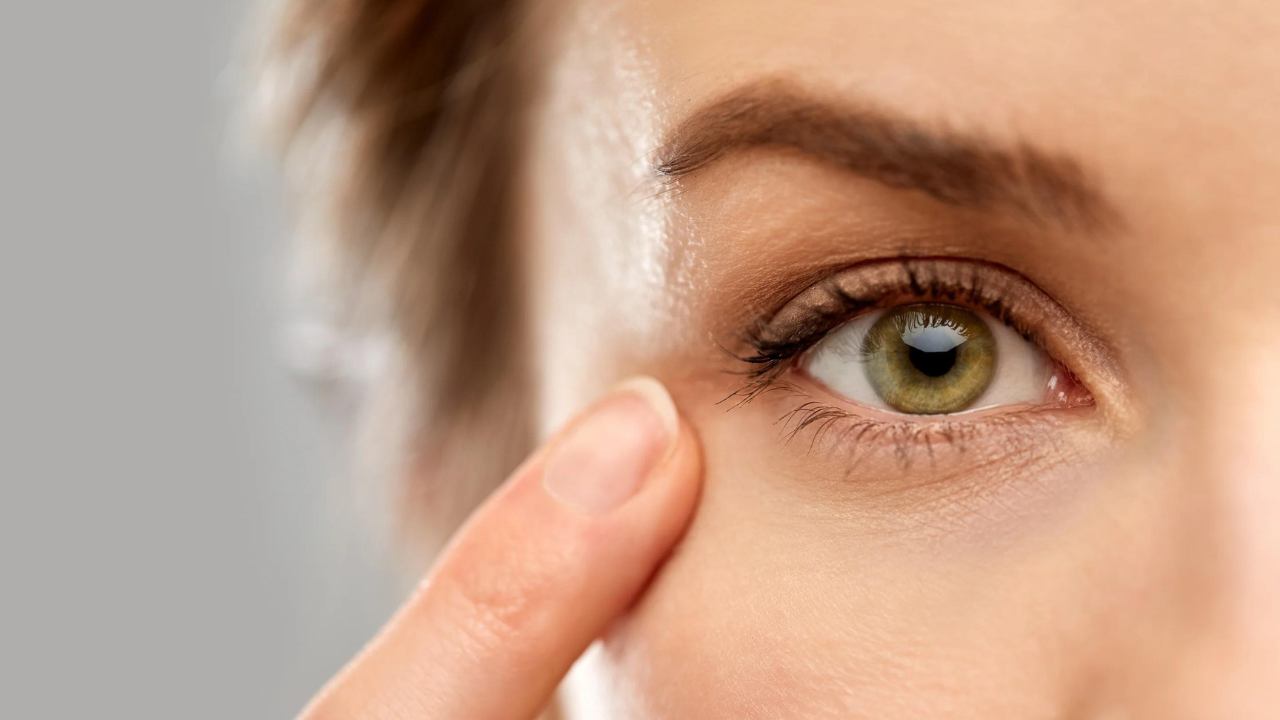Dry eyes can be an uncomfortable and annoying problem for many people. The sensation of dryness, burning, grittiness or stinging can have a major effect on day-to-day life.
To make matters worse, the symptoms often seem to get worse with age - making it ever more important to look for solutions that might help alleviate this common condition.
One possible remedy is increased collagen intake; but as we all know, not every solution is suitable for everyone.
In order to gain some clarity on the topic and answer the question ‘does collagen help with dry eyes’ lets take a closer look at what collage does for dry eye disease and the potential benefits it could bring in treating these symptoms.
What is collagen and what are its benefits for dry eyes?
Collagen is a protein, naturally produced by the human body, and found in skin, cartilage, bones and connective tissue. It's responsible for giving structure to these areas of our bodies, helping them remain elastic and strong. As we age, the production of collagen decreases - leading to dryness or thinning of the skin.
The same is true of the eyes and cornea too. As collagen production decreases, the delicate tissues that make up your eyelids and corneas become drier and more prone to irritation or disease. This can lead to uncomfortable symptoms such as dryness, stinging and burning sensations.
Introducing an additional source of collagen into our diets could potentially help alleviate some of these symptoms by reducing dryness and inflammation in the eyes. Collagen supplements are available in the form of tablets, powders or topical creams, to help restore moisture to the delicate tissues of your eyes.
Is collagen effective for treating dry eyes?
The effects of collagen supplementation on dry eye symptoms is still largely unknown. While some studies have suggested that there may be benefits, more research is needed to confirm this.
That being said, it’s also important to note that collagen is not a miracle cure-all and will likely not be effective for everyone. It’s possible that certain individuals may be sensitive or allergic to the supplement, so it’s always best to talk with your doctor before taking any supplements or medications.
Also, it’s important to note that collagen supplementation may not be the only solution for treating dry eyes. Other treatments such as eye drops or ointment can also provide relief from uncomfortable symptoms.
How does collagen help with dry eyes
Here are the main ways that collagen supplements may help with dry eyes:
- Strengthening the delicate tissues of the eyelids and corneas.
- Helping to reduce inflammation, which can lead to irritation and redness.
- Providing moisture, which helps keep the eyes lubricated and comfortable.
- Increasing elasticity, helping to reduce the risk of infection or disease.
The types of collagen that can be used to treat dry eyes
There are different types of collagen that can be used to treat dry eyes. The most common form is marine collagen, which is derived from fish. This type of collagen has been found to be highly effective in treating dry eye symptoms.
Another option is bovine or beef-derived collagen, which is less expensive but still contains beneficial proteins and amino acids.
Finally, plant-based collagen is another option that can be used to treat dry eye symptoms. This type of collagen is derived from soy, corn or wheat and has been found to help reduce inflammation and irritation. It can also provide some additional moisture in the eyes, helping to keep them lubricated and comfortable.
Potential side effects of using collagen for dry eyes
Here are the potential side effects of using collagen for dry eyes:
- Allergic reactions in some individuals.
- Fluid retention or swelling around the eyelids.
- Stinging sensations or irritation when applied topically.
- Interactions with certain medications, so always talk to your doctor before taking any supplements.
Collagen is a naturally occurring protein and can have beneficial effects on dry eyes. However, it’s important to remember that not everyone will respond the same, so it may be necessary to experiment with different types and formulations of collagen until you find one that corneal epithelial cells works best for you. Additionally, it’s always a good idea to talk to your doctor before taking any supplements or medications to ensure they won’t interact with existing medications or treatments.
Alternatives to using collagen for treating dry eyes
If you’re looking for a natural way to treat your dry eyes, there are several other options that may be more effective than collagen. Here are some alternatives to consider:
- Increasing your intake of omega-3 fatty acids and vitamin E, which can help reduce inflammation and moisture loss in the eyes.
- Applying warm compresses to the eyes, which can help reduce redness and irritation.
- Wearing protective eyewear when in the sun or windy conditions, as this can help protect your eyes from dehydration.
- Avoiding contact lenses for extended periods of time, as this could cause further irritation.
- Making lifestyle changes such as reducing stress levels, eating a healthy diet, and drinking plenty of water.
Tips on how to properly apply collagen for best results
If you decide to use collagen for treating dry eyes, it’s important to understand how to properly apply it in order to achieve the best results. Here are some tips:
- Use a topical cream or ointment instead of powder or tablets, as these will provide more moisture and be easier to spread around the eyes.
- Be sure to apply the cream or ointment in a thin layer over the eyelids and surrounding area. Avoid epithelial cell differentiation getting it directly in your eyes as this could cause further irritation.
- Allow the collagen to absorb into the skin before applying any other products, such as eye drops or makeup.
- Follow up with a moisturizer after applying collagen, which will help lock in the moisture and protect your eyes from further dehydration.
FAQs
Should I use collagen for treating dry eyes?
Collagen has the potential to help reduce inflammation and irritation in the eyes, as well as provide additional moisture. However, it’s important to remember tear production that not every solution is suitable for everyone, so it’s always best to talk with your doctor before taking any supplements or medications.
What type of collagen is best for treating dry eyes?
Marine collagen is the most common form used for treating dry eyes, as it has been found to be highly effective in reducing inflammation and irritation. Bovine or beef-derived collagen is also an option, though it may not be as ocular surface effective. Finally, plant-based collagen derived from soy, corn or wheat can help reduce inflammation and irritation, as well as provide the eye health and skin health some additional moisture.
Are there any side effects of using collagen for dry eyes?
There are potential side effects of using collagen for dry eyes, including allergic reactions in some individuals, tear film fluid retention or swelling around the eyelids, stinging sensations or irritation when applied topically and interactions with certain medications. It’s always best to talk to your doctor before taking any supplements or medications.
Conclusion
In conclusion, it appears that collagen can be a great help in the treatment of dry eyes. Using this natural remedy may be able to relieve the eye symptoms associated with dry eye syndrome.
However, it is important to consult an optometrist before taking any supplements or engaging in any type of treatment program for dry eyes.
An optometrist can help you determine if collagen is right as well as what other treatments may prove beneficial in reducing your symptoms.
Ultimately, the key to successfully treating your dry eyes is finding the right combination of treatments to target your specific problem and ease the discomfort you're experiencing.
Does Collagen Help With Dry Eyes? The answer is yes - but don't forget there are many ways you can find relief from your symptoms.


